Newsletter 17 Jul 2023
Environment: What’s Up in GENeva | 17 July – 13 August 2023

The Geneva Environment Network’s weekly newsletter includes the latest information on the global environmental agenda, main events, job vacancies, learning opportunities, as well as other useful resources and updates. Stay tuned and follow us also on Twitter, Facebook, LinkedIn, and Youtube, or visit our website regularly for additional updates.
This newsletter exceptionally covers a period of four weeks. Due to the Swiss national holiday, the UN Office in Geneva will be closed on Tuesday, 1 August.
Image of the week | Global Consultation on Chemicals and Waste Issues of Concern organized at Palais des Nations, on 11 and 12 July 2023. The two-day consultations showed a willingness to advance action from Member States, NGOs and International Organizations, with important steps still to be taken ahead of the 6th Session of the UN Environment Assembly.
Advancing the Rights of Indigenous Peoples
Environment and human rights continue to remain high on the agenda in Geneva with the 16th session of the Expert Mechanism on the Rights of Indigenous Peoples (EMRIP) taking place from 17 to 21 July 2023. EMRIP is a subsidiary body of the United Nations’ Human Rights Council (HRC), created through HRC resolution 6/36 adopted in 2007, meeting once a year to provide indigenous-based expertise to the Council. It is to be noted that:
- At this session, the Expert Mechanism will present the Study on the impact of militarization on the rights of Indigenous Peoples, which also highlights the environmental degradation inflicted by militarization. In its advice, the Expert Mechanism mentions that States should refrain from contaminating Indigenous territories with military waste, and should remedy the damage already caused to Indigenous lands and territories, to Indigenous Peoples’ health and to their right to a healthy, clean and sustainable environment, from past polluting activities.
- Follow the EMRIP meeting and its side events, and find more information on the Docip resource page
- Environmental negotiations in Geneva and beyond have been referring to Indigenous People and their knowledge, which are at the frontline of the protection of our planet. → Learn more about the role of Geneva in the promotion and protection and the rights of Indigenous Peoples in our dedicated update.
Environment @ Human Rights Council
The 53rd session of the Human Rights Council concluded on Friday, 14 July 2023. Environment-related outcomes include the adoption without a vote of the resolution on human rights and climate change, forwarded by the Philippines, Bangladesh, and Viet Nam. The resolution — recalling the recognized human right to a clean, healthy and sustainable environment and recognizing the link between the adverse impacts of climate change, including on livelihoods, and displacement and migration — calls upon States to better promote the human rights of persons in vulnerable situations, their inclusion in risk reduction decision-making and their access to livelihoods. Other relevant elements include:
- Recognition of the importance of the safe and meaningful participation of civil society in climate action;
- Decision on the annual panel discussion at HRC56 shall focus on ensuring livelihood resilience in the context of the risk of loss and damage related to the adverse effects of climate change; and
- Request for the Secretary-General to conduct an analytical study on the impact of loss and damage from the adverse effects of climate change on the full enjoyment of human rights, exploring equity-based approaches and solutions to addressing the same, to be submitted at HRC57.
A resolution on the contribution of development to the enjoyment of all human rights submitted by China was also adopted, affirming the commitments to end poverty and hunger so that “human beings can fulfil their potential in dignity and equality in a healthy environment.”
→ Overview of key environmental issues at HRC53, side events, summaries, highlights, and further resources are available on our HRC53 and the environment-dedicated webpage.
Extreme Weather Underscoring Urgent Need for More Climate Action
Extremely high temperatures are engulfing large parts of the Northern hemisphere, while devastating floods triggered by relentless rainfall have disrupted lives and livelihoods, underscoring the urgent need for more climate action, highlighted the World Meteorological Organization last week. Record-breaking temperatures have been registered across the globe in the past weeks. Various evidence shows the far-reaching changes taking place in Earth’s system as a result of human-induced climate change. In addition:
- In the past years, heatwaves have become a more common phenomenon, and research in attribution science, examining the link between rising levels of atmospheric carbon dioxide and extreme weather events, indicates that record-breaking temperatures during heatwaves would not be detected without human-induced climate change. The IPCC Working Group I report, Climate Change 2021: The Physical Science Basis, found that hitting 1.5°C of global warming will cause increasing heatwaves, longer warm seasons and shorter cold seasons. At 2°C of global warming, heat extremes would more often reach critical tolerance thresholds for agriculture and health.
- Heatwaves also represent a non-negligible cause of death. A recent research published in Nature Medicine on heat-related mortality during the summer 2022 heatwave across Europe found that the warming observed since 2015 was associated with 18,547 additional summer heat-related deaths for every +1 °C increase in temperature. In the absence of adaptation to future summer warming, a heat-related mortality burden of 68,116 deaths on average every summer by 2030, 94,363 deaths by 2040, and 120,610 deaths by 2050 are expected.
- A study led by the University of Bern has shown that about 60 percent of the more than 600 heat-related deaths in the summer of 2022 in Switzerland can be attributed to human-induced global warming. The study also points out that heatwave action plans prevented even higher heat-related mortality rates last summer in the canton of Geneva.
- A special edition of the Global Assessment Report (GAR 2023), released by the UN Office for Disaster Risk Reduction (UNDRR) during the UN High-level Political Forum on Sustainable Development, finds hard-won economic and development gains are in danger from the growing number of disasters with global warming the prime contributor.
While the planet was facing extreme weather impacts, last week the 7th Ministerial on Climate Action (MoCA) was taking place in Brussels:
- UN Climate Change Executive Secretary Simon Stiell opened the Ministerial with an outlook of COP28 “sticky issues”, highlighting the intention to make the first stocktaking moment after the 2015 Paris Agreement an “opportunity to enhance the action and support necessary to achieve goals.” Stiell listed implementation issues to be addressed at COP28, notably the fund for loss and damage, work on the global goal on adaptation and mitigation, fossil fuel subsidies and phase-down, phase-down, just transition, climate finance, and called for enhanced transparency and inclusive climate action – all topics with strong contributions from international Geneva.
- Sultan Al Jaber, COP28 president, laid out his four-pillar plan of action that aimed to steer COP28 towards fast-tracking the transition to a low-CO2 world.
- Ahead of the meeting, Germany’s climate envoy Jennifer Morgan, her Kenyan counterpart Ali Mohamed, Canada’s environment minister Steven Guilbeault, Belgium’s climate minister Zakia Khattabi and Austria’s minister for climate action Leonore Gewessler called in a letter published in the Financial Times for phaseout of unabated fossil fuels and tripling of renewable energy capacity.
Other recent climate news include:
- How Bill Gates wants to hack the weather to save us from extinction | Telegraph | 10 July 2023
The Microsoft founder is funding experiments to cool the Earth’s climate. But are they safe?
Earth Overshoot Day 2023
On Thursday 2 August, humanity is reaching its overshoot day, the date when its demand for ecological resources and services exceeds what the Earth can regenerate in that year. Earth Overshoot Day 2023 is again a strong reminder that our way of using natural resources is not sustainable: humanity currently uses 75% more than what the planet’s ecosystems can regenerate. To determine the date of Earth Overshoot Day, the Global Footprint Network combines data and forms the most reasonable assumptions to assess humanity’s resource situation. From Earth Overshoot Day until the end of the year, humanity operates on ecological deficit spending. → Find resources about the day, learn new tips for a more sustainable living, and discover various initiatives on sustainable production and consumption to #MoveTheDate in our update
Happening Abroad
High-level Political Forum on Sustainable Development (HLPF) | HLPF 2023 will conclude this week at the UN Headquarters in New York, with the high level segments.
2nd part of the 28th session of the Annual Session International Seabed Authority (ISA) | ISA28 is convening for two more weeks in Kingston, Jamaica. The Office of the High Commissioner for Human Rights released a document summarizing the Key human rights considerations on the impact of seabed mining. While the idea that seabed mining would promote measurable improvement in economic, social and cultural rights, like ending hunger and poverty, is attractive, the reality is that economic activity does not ipso facto promote measurable improvement. Often, ignoring human rights guardrails, States allow businesses to foist costs on individuals not party to the transaction. → Follow the live coverage of the Earth Negotiation Bulletin.
69th Session of the IPCC | The Intergovernmental Panel on Climate Change will convene its 59th Session from 25 to 28 July 2023 in the UN Office at Nairobi, Kenya. The agenda includes the election of IPCC Bureau members, including the IPCC Chair. The session will also lay the foundation for its seventh assessment cycle, scheduled to end in 2030 and taking place in the crucial years necessary to revert global warming to reach 1.5℃. → Get to know the nominated candidates and follow the live ENB coverage.
2023 UN Food Systems Stocktaking Moment | The UN Food Systems Summit +2 Stocktaking Moment, hosted by Italy, in collaboration with the FAO, IFAD, WFP the UN Food Systems Coordination Hub, and the broader UN system, will take place in Rome, Italy from 24 to 26 July 2023. The Summit will be held under the theme “Sustainable Food Systems for People, Planet and Prosperity: Diverse pathways in a shared journey” and serves as a make-or-break moment to maintain and generate further momentum on action for food systems transformation in support of SDGs acceleration. The Stocktaking Moment comes at a timely moment as the 2023 State of Food Security and Nutrition in the World (SOFI) report launched by FAO, IFAD, UNICEF, WHO and WFP shows that 122 million more people have been pushed into hunger since 2019 due to multiple crises. UN Agencies warn that if trends remain as they are, the Sustainable Development Goal of ending hunger by 2030 will not be reached. As part of the summit, UNEP will co-host side events on 24 and 26 July and a Leadership Dialogue Session on Food Systems for the Planet on 25 July. → Consult the programme and learn more about Food Systems and the Environment.
Enjoy a Green Summer in Geneva
The Geneva Environment Network has compiled a list of suggestions for environmental and nature-themed activities to enjoy this summer in Geneva: exhibitions, workshops, shows, contests, outdoor activities, and online resources. The list will be regularly updated.
While our weekly newsletter is also taking a break and will be back on 14 August, we will continue providing relevant information on ongoing activities in Geneva through our website and social network accounts.
What (Else) to Read Next?
- H5N1 High pathogenicity avian influenza in wild birds – Unprecedented conservation impacts and urgent needs | Scientific Task Force on Avian Influenza and Wild Birds | CMS & FAO | July 2023
H5N1 high pathogenicity avian influenza (HPAI) is currently causing unparalleled mortality of wild birds and mammals worldwide with threats to population levels for some species already under multiple anthropogenic pressures. Effective prevention and management of HPAI outbreaks requires a One Health approach to ensure appropriate cross-sectoral attention to human, animal and environmental health and coordination among agencies. - Maastricht Principles on the Human Rights of Future Generations | 14 July 2023
The Maastricht Principles on the Human Rights of Future Generations seek to clarify the present state of international law as it applies to the human rights of future generations. The Principles consolidate the developing legal framework and affirm binding obligations of States and other actors as prescribed under international and human rights law, clarifying that human rights, including the right to a clean, healthy, and sustainable environment, do not have temporal limitations. Human rights apply fully to future generations. - Global climate-change trends detected in indicators of ocean ecology | B. B. Cael, Kelsey Bisson, Emmanuel Boss, Stephanie Dutkiewicz & Stephanie Henson | Nature | 12 July 2023
Strong natural variability has been thought to mask possible climate-change-driven trends in phytoplankton populations from Earth-observing satellites.
- Plastic waste is everywhere — and countries must be held accountable for reducing it | Nature |
- Large-scale collaborations uncover global extent of plastic pollution | Kara Lavender Law & Chelsea M. Rochman | Nature | 12 July 2023
Ambitious campaigns to sample plastic pollution in coral-reef and freshwater ecosystems demonstrate the value of international cooperation in assessing contamination to identify drivers and inform management.
- WMO highlights efforts to tackle sand and dust storms | WMO | 12 July 2023
WMO is working with various UN partners to strengthen the response to sand and dust storms.
- Continuing large-scale global trade and illegal trade of highly hazardous chemicals | Hongyan Zou, Tao Wang, Zhong-Liang Wang & Zhanyun Wang | Nature | 10 July 2023
Pollution caused by anthropogenic chemicals contributes to interlinked planetary crises, together with climate change and biodiversity loss. One of the key treaties adopted to regulate the transboundary movements of hazardous chemicals is the Rotterdam Convention, which created a framework for countries to better handle the international trade of certain hazardous chemicals.
Events
See all
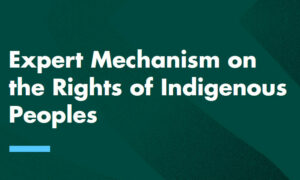
Body Meeting
16th session of the Expert Mechanism on the Rights of Indigenous Peoples
17 – 21 Jul 2023
Palais des Nations | Room XVII
HRC

Body Meeting
Sixth meeting of the Intergovernmental Negotiating Body (INB) for a WHO instrument on pandemic prevention, preparedness and response
17 – 21 Jul 2023
WHO

Body Meeting
Multi-Year Expert Meeting on Transport, Trade Logistics and Trade Facilitation, 10th session | Coordination and digitalization as a means to accelerated and climate-smart trade facilitation
17 – 19 Jul 2023
Palais des Nations, Room XVIII
UNCTAD


Virtual
Listening to nature: harnessing AI and acoustics for biodiversity conservation
17 Jul 2023 17:00 – 18:30
Online
ITU, CBD


Virtual
Managing Mercury along the Oil and Gas Value Chains: Sharing of Experience and Best Practices
18 Jul 2023 13:00 – 15:00
Online | Teams
UNEP Global Mercury Partnership

Exhibition
Indigenous Peoples’ March & Deskaheh Exhibition Launch
18 Jul 2023 18:00
Place des Nations & Quai Wilson
Docip, City of Geneva
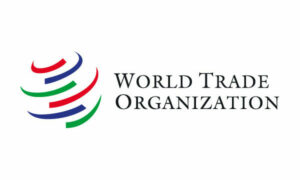
Body Meeting
Informal Open-ended Negotiating Group on Rules | Fisheries Subsidies
19 Jul 2023 10:00
WTO | Room S1
WTO

Body Meeting
Committee on Agriculture | Working Group and Workshop on Green Revolution
19 Jul 2023 10:00
WTO | Room CR
WTO

Body Meeting
Informal Open-Ended Committee on Trade and Environment
19 Jul 2023 15:00
WTO | Room S2
WTO
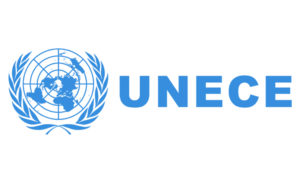
Body Meeting
Second Meeting of the Task Force on Just Transition
24 Jul 2023 14:00 – 15:30
Online
UNECE
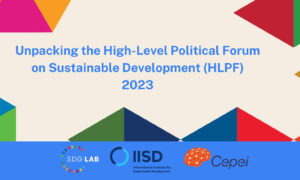
Conference
High-Level Political Forum 2023 Debrief
25 Jul 2023 15:00 – 16:00
Online | Zoom
IISD, SDG Lab


Virtual
ITU Webinar | Digital transformation and Ethical use of technology for animals
26 Jul 2023 13:00 – 14:30
Online | Zoom
ITU
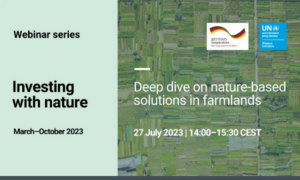
Virtual
Investing with nature: Deep dive on nature-based solutions in farmlands
27 Jul 2023 14:00 – 15:30
Online | BrightTalk
UNEP FI, GIZ

Local
Fête nationale Suisse 2023 | Urgence Climatique et Droits Humains
01 Aug 2023 15:00
Parc La Grange
City of Geneva


Jobs
See all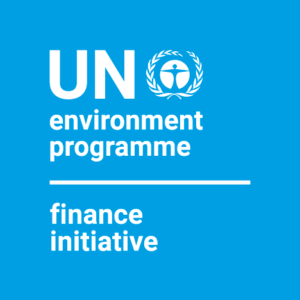



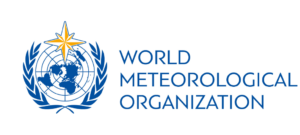

Intern
Environment Affairs Intern
20 Jul 2023
UNECE Convention on the Transboundary Effects of Industrial Accidents






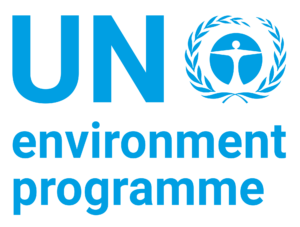










Updates
See all
25 Apr 2024
Earth Overshoot Day


24 Apr 2024
Food Systems and the Environment



17 Apr 2024
